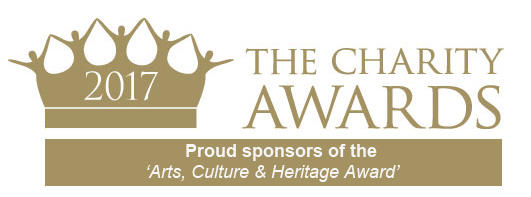Juliet Taylor looks at the qualities needed to be a truly effective leader, and how they need to embrace change and disruption in order to maintain a resilient sector in the years to come.
We are only too familiar with the changing face of leadership. What does it really mean to be a great leader in the arts, culture or heritage world today? It’s clear that societal trends have had a clear and obvious bearing on the experience of many chief executives who are now more visible and accessible than ever before. And the requirement to find natural relationship and alliance builders, as well as commercial acumen, has been consistent as organisations explore new ways of achieving financial sustainability and growth. These things give rise to a new way of leading. While there is so much more scope to deliver real impact, these jobs are getting tougher. Are there any major themes which can be shared?
Truly effective leaders embrace disruption. They aren't distracted or fazed by it. They can measure their own success and judge the progress and performance of their organisation in the context of continual change. They are constantly balancing many moving parts, can spot opportunities in that context and have the courage and judgement needed to respond to them.
In an age of increased scrutiny and public interest, the onus for running an organisation well rests with more than one person - it's the collective responsibility of the board and executive together. In recruiting chief executives, boards need to consider the changing demands of their organisation and be prepared to support their CEO or director.
'Don't deviate from the purpose'
In an era of constantly declining resources, staying true to the vision and mission is critical. Today’s chief executives are tasked with thinking innovatively about funding; in a competitive environment, they must find ways to attract funding. Great chief executives balance this with a powerful and visible commitment to their organisation’s purpose. They don’t deviate from it.
The most fundamental qualities are now considered to relate to the mission and purpose of the organisation, and how that is reflected in the approach, style and behaviours of a great leader. This is closely connected with their approach to engagement with staff, trustees and the outside world, audiences and visitors – but also has a bearing on key decisions about sustainability, growth and expansion, particularly for artistic venues and visitor attractions. For savvy chief executives, the digital age – despite its challenges – has brought with it unprecedented opportunity for arts and culture. Effective leaders are borrowing ideas, disciplines and talent from other sectors, which in itself is changing the ‘traditional’ notion of charities in structure, approach and ethos. Once they have built the right team, they will lead in a way that brings everyone together to become more than the sum of its parts. They both trust and develop their team and give their directors the space they need to flourish.
The 10 character traits most valued in today’s CEOs
1. Embrace disruption
2. Agile and flexible
3. Self-aware
4. Inspires through a clear vision
5. Powerful partnership-builder
6. Gets to the heart of the matter
7. Authentic
8. Resilient
9. Has humility
10. True to themselves
Building high performing organisations that deliver on their promises in any sector is challenging and requires leadership capability that goes well beyond professional competence and technical skills. Managing the tensions amongst stakeholders where there are no straight lines, where expectations are huge and often changing and under a constant spotlight takes leaders who are aware of their own impact, who have personal resilience, commitment and courage to see things through. But these attributes are not innate. The truth is that none of us knows what the sector will look like in five or 10 years’ time, but we have a responsibility to find and develop the people who will shape and protect a vibrant and resilient sector in the years to come.
Civil Society Media wishes to thank GatenbySanderson for its support with this article
Juliet Taylor is partner and head of not for profit practice at GatenbySanderson










